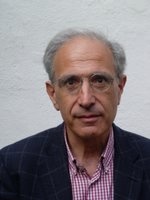The Ig Nobel Prize awards are given out every early October since 1991 by the Annals of Improbable Research, a bimonthly magazine which satirises scientific research. The awards are a parody of the Nobel Prize, and are given to achievements that "first make people laugh, and then make them think."
Ten awards were made in 2007 in different fields. The winners are:
•
Medicine: Brian Witcombe, of Gloucestershire Royal NHS Foundation Trust, UK, and Dan Meyer, who studied the health consequences of sword swallowing.
•
Physics: A team from the USA and Chile, who made a study about how cloth sheets become wrinkled.
•
Biology: Dr Johanna van Bronswijk of the Netherlands, for carrying out a census of creatures that live in people's beds.
•
Chemistry: Mayu Yamamoto, from Japan, for creating a method of extracting vanilla fragrance and flavouring from cow dung.
•
Linguistics: A team from the University of Barcelona, who discovered that rats cannot tell the difference between Japanese and Dutch when spoken backwards.
•
Literature: Glenda Browne of Blue Mountains, Australia, for her study on how the word "The" confuses people when they try to put things in alphabetical order.
•
Peace: The US Air Force Wright Laboratory for trying to develop a "Gay bomb" that would turn enemy soldiers homosexual.
•
Nutrition: Brian Wansink of Cornell University for his investigation into the limits of the human appetite, by using a self-refilling "bottomless" bowl of soup.
•
Economics: Kuo Cheng Hsieh of Taiwan, for patenting a machine that catches bank robbers by dropping a net on top of them.
•
Aviation: A team from the National University of Quilmes, Argentina, for discovering that impotency drugs can help hamsters recover from jet lag.
Annals of Improbable Research:
www.improb.com The Ig Nobel awards:
http://improbable.com/ig and the list of past winners:
www.improb.com/ig/ig-pastwinners.html The official Nobel Prize website:
www.nobelprize.org The official Nobel Peace Prize website:
www.nobelpeaceprize.org The 2007 Nobel Peace Prize was won jointly by Al Gore and the Intergovernmental Panel on Climate ChangeSince just failing to become President of the USA, Al Gore has been devoting his talents and his energy to campaigning on the issue of global warming. His book and film “An Inconvenient Truth” have been subtitled “A global warning”, and are intended as a wake-up call to the world. He is also building a movement of activists who can go out and spread the message to a world which needs to act faster than it seems to want to.
These are Al Gore’s Top Ten Tips for simple things you can do today that will help stop the world warming up (or at least make a small contribution to slowing down the rate).
1. Replace lightbulbs with compact fluorescent ones.
2. Drive less.
3. Recycle more.
4. Keep your car tyres properly inflated.
5. Use less hot water
6. Avoid products with a lot of packaging.
7. Reduce your heating and air conditioning usage.
8. Plant a tree.
9. Turn off electronic devices when you are not using them instead of putting them on standby.
10. Be part of the solution.
The Intergovernmental Panel on Climate Change:
www.ipcc.chAl Gore’s site:
www.aninconvenienttruth.co.uk

